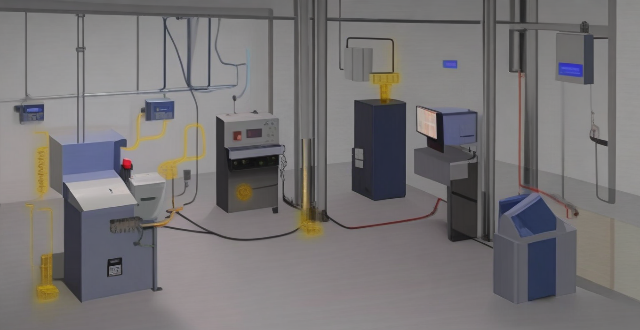Speed controllers enhance energy efficiency in machinery by reducing energy consumption, improving motor efficiency, optimizing processes, and minimizing standby power use.

How does a Speed Controller Contribute to Energy Efficiency in Machinery?
Introduction
Energy efficiency in machinery is crucial for reducing operational costs and environmental impact. One way to achieve this is through the use of speed controllers, which regulate the speed of electric motors. In this article, we will explore how speed controllers contribute to energy efficiency in machinery.
Main Points
1. Reducing Energy Consumption
- Variable Speed Drives (VSDs): Speed controllers, such as VSDs, allow motors to operate at the required speed rather than running at full capacity all the time. This reduces energy consumption since less power is needed to maintain the desired speed.
2. Improving Motor Efficiency
- Soft Start/Stop: Speed controllers enable motors to start and stop smoothly, reducing mechanical stress and wear on the equipment. This leads to improved motor efficiency and longer lifespan.
- Reduced Heat Losses: By controlling the motor speed, heat losses can be minimized, resulting in higher overall efficiency.
3. Optimizing Processes
- Precise Control: Speed controllers provide precise control over the motor's speed, allowing for optimal process conditions and reduced energy waste.
- Adaptive Control: Some advanced speed controllers can adapt to changing process requirements, further enhancing energy efficiency by ensuring that the motor operates at the most efficient speed for the given load.
4. Reducing Standby Power Consumption
- Standby Mode: When machinery is not in use, speed controllers can put the motor into standby mode, reducing standby power consumption without affecting performance when it needs to be activated again.
- Intelligent Control: Intelligent speed controllers can monitor system parameters and adjust motor speed accordingly, minimizing energy consumption during idle periods.
Conclusion
Speed controllers play a vital role in improving energy efficiency in machinery by reducing energy consumption, improving motor efficiency, optimizing processes, and reducing standby power consumption. By implementing these devices, businesses can significantly reduce their operational costs and environmental impact while maintaining or even enhancing productivity and equipment longevity.